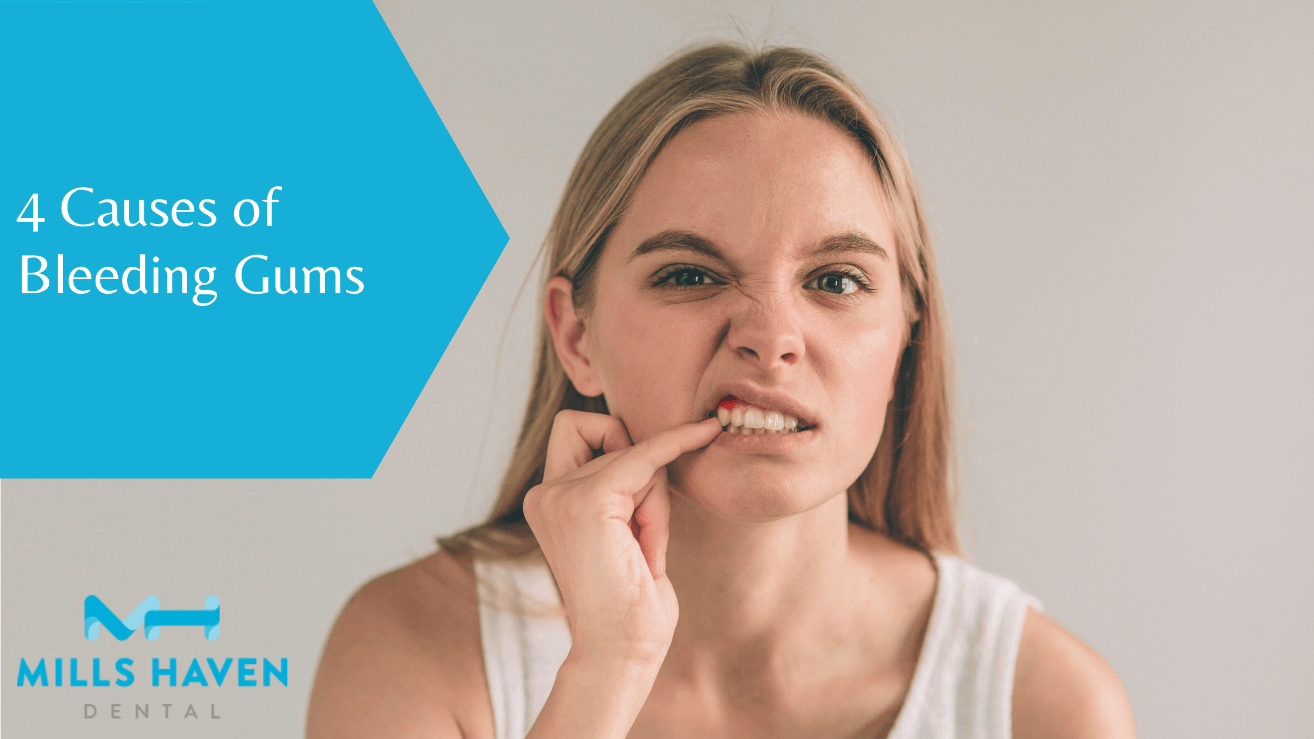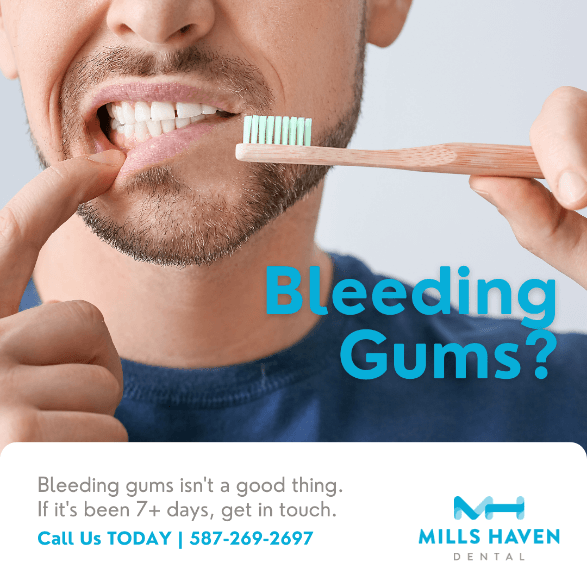4 Causes of Bleeding Gums
August 8 2021 by Mills Haven Dental

Have you ever been at the bathroom sink, brushing your teeth or flossing, when your tastebuds pick up on that awful metallic taste? It can be alarming when you spit pink water in the sink and see a red line creeping along your gums.
If your gums are bleeding, you need to take it seriously. We want to tell you about four possible causes for your bleeding gums, and what you can do about them.
#1 Gum Disease
Bleeding gums is a side effect of gingivitis and periodontitis, types of gum disease. This disease is typically caused by bacteria and plaque build-up, though it may have other triggers that cause it. For example, people with diabetes are more prone to gum disease, even with great dental hygiene.
For the most part, gum disease is within our control to prevent (but not always). Make sure that you practice great dental hygiene and visit your dentist regularly.
Gum disease is no joke and is suspected to be linked to other major illnesses, like lung and heart disease. If you suspect you may have a problem with your gums, reach out to your dental team immediately.
#2 Poor Dental Hygiene
If you don’t take the best care of your teeth, you may notice that your gums tend to bleed when you brush or floss. Poor dental hygiene doesn’t just mean infrequent brushing and flossing (though you should brush twice per day). If you’re brushing too hard, using an abrasive toothbrush, or brushing too long, your gums may bleed. Talk to your dentist about what routine will work for you.
SIDE NOTE: Your gums may also bleed for a brief period if you start to improve your dental hygiene practices. Don’t be alarmed if you start regularly flossing and there is blood for the first few days. However, if the problem persists longer than 1 week, make sure to talk to your dentist.
#3 Medication Side Effects

Believe it or not, the medication that is supposed to make you feel better may cause your gums to inflame or become more sensitive. If you recently started a new medication and your gums are bleeding, double-check the label or information booklet to see if bleeding gums are a possible side effect.
There are three types of medication that commonly cause bleeding gums. They are:
- Antidepressants;
- Blood pressure meds; and
- Blood thinners.
#4 Pregnancy Gingivitis
An unfortunate side effect of pregnancy is pregnancy gingivitis. If you’re currently pregnant or were pregnant recently, you should be aware that the changes to your hormones can negatively impact your gums.
There is a strong possibility that your gums will become more sensitive and inflamed. If you start to bleed easily during your flossing and brushing routine, make sure you let your dentist and doctor know what’s going on. Don’t let this bleeding deter you from brushing and flossing regularly, because your hygiene routine is actually helping your gums heal.